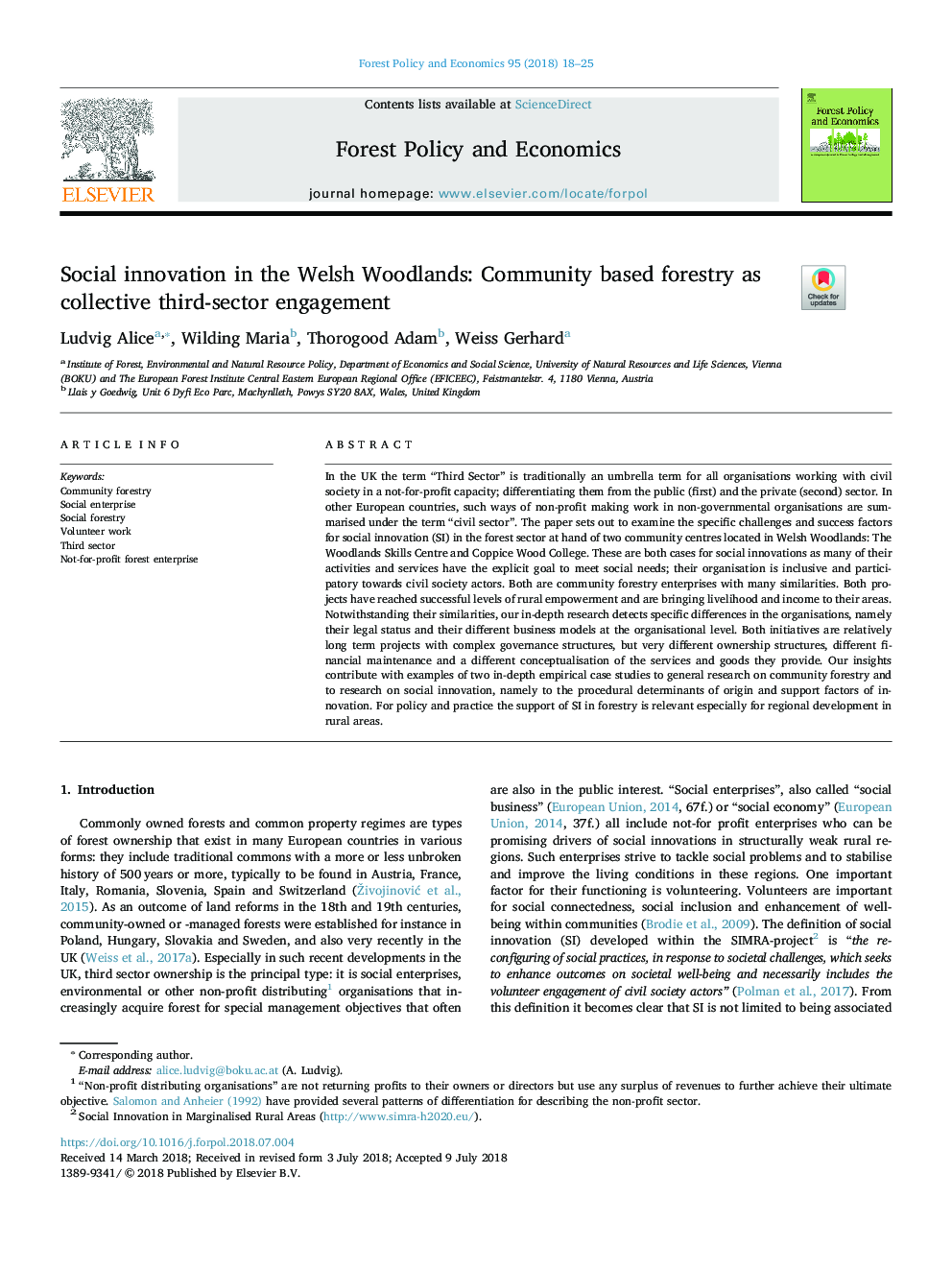| Article ID | Journal | Published Year | Pages | File Type |
|---|---|---|---|---|
| 6544699 | Forest Policy and Economics | 2018 | 8 Pages |
Abstract
In the UK the term “Third Sector” is traditionally an umbrella term for all organisations working with civil society in a not-for-profit capacity; differentiating them from the public (first) and the private (second) sector. In other European countries, such ways of non-profit making work in non-governmental organisations are summarised under the term “civil sector”. The paper sets out to examine the specific challenges and success factors for social innovation (SI) in the forest sector at hand of two community centres located in Welsh Woodlands: The Woodlands Skills Centre and Coppice Wood College. These are both cases for social innovations as many of their activities and services have the explicit goal to meet social needs; their organisation is inclusive and participatory towards civil society actors. Both are community forestry enterprises with many similarities. Both projects have reached successful levels of rural empowerment and are bringing livelihood and income to their areas. Notwithstanding their similarities, our in-depth research detects specific differences in the organisations, namely their legal status and their different business models at the organisational level. Both initiatives are relatively long term projects with complex governance structures, but very different ownership structures, different financial maintenance and a different conceptualisation of the services and goods they provide. Our insights contribute with examples of two in-depth empirical case studies to general research on community forestry and to research on social innovation, namely to the procedural determinants of origin and support factors of innovation. For policy and practice the support of SI in forestry is relevant especially for regional development in rural areas.
Related Topics
Life Sciences
Agricultural and Biological Sciences
Forestry
Authors
Ludvig Alice, Wilding Maria, Thorogood Adam, Weiss Gerhard,
